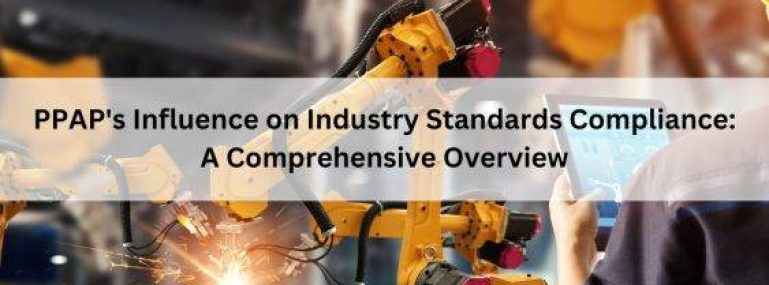The Production Part Approval Process (PPAP) plays a pivotal role in ensuring quality control and product safety across diverse industries. Its significance lies in providing a systematic and standardized approach for the approval of new or modified parts before their integration into the manufacturing process. Firstly, PPAP enhances communication and collaboration between suppliers and manufacturers by establishing clear guidelines, thereby preventing misunderstandings, and facilitating the prompt resolution of potential issues.
Moreover, PPAP serves as a robust risk mitigation tool, compelling suppliers to furnish comprehensive documentation, including design records, process flows, control plans, and measurement system analyses. This meticulous documentation acts as tangible evidence of product conformity, reducing the risk of defects, failures, and recalls significantly. Additionally, PPAP contributes substantially to product consistency and reliability by ensuring adherence to standardized procedures, leading to the early detection and prevention of non-conforming parts. This, in turn, results in heightened customer satisfaction, improved brand reputation, and increased market competitiveness.
PPAP compliance is instrumental in helping organizations meet regulatory requirements and industry standards prevalent in sectors like automotive, aerospace, and medical devices. The process aids in demonstrating adherence to specific regulations by providing evidence of thorough product validation and control. Furthermore, PPAP fosters a culture of continuous improvement within the manufacturing process. Suppliers, as part of the approval process, are encouraged to conduct process capability studies, perform statistical analyses, and implement corrective actions. This data-driven approach allows organizations to refine their processes continually, minimize variation, and optimize product quality.
In summary, the multifaceted impact of PPAP, coupled with industry standardization, spans effective communication, risk minimization, product consistency, regulatory compliance, and continuous improvement. Implementation of PPAP establishes a robust framework, ultimately leading to heightened customer satisfaction, reduced costs, and sustained success in the marketplace.
The implementation of PPAP enables companies to conduct comprehensive reviews and validations of their products throughout the production process, thereby reducing the risk of defects, non-conformities, and potential safety issues. Adherence to industry standards is essential for upholding product quality, meeting regulatory obligations, and improving customer satisfaction.
Key Impacts of PPAP on Industry Standards Compliance:
- Requirements Verification: PPAP entails a thorough examination of product design, engineering specifications, and relevant documentation, ensuring compliance with mandatory requirements and adherence to industry standards.
- Process Capability Assessment: PPAP assesses the manufacturing process’s capability to consistently produce products within specified limits. This evaluation identifies process gaps or potential deviations from industry standards, enabling corrective actions before full-scale production.
- Risk Mitigation: PPAP incorporates elements like Failure Modes and Effects Analysis (FMEA) and Control Plans, facilitating the analysis of potential failure modes, associated risks, and preventive measures. This proactive approach ensures adherence to industry standards, minimizing the risk of product failures or non-compliance.
- Supplier Collaboration: PPAP encourages close collaboration between manufacturers and suppliers. Suppliers must submit relevant documentation to demonstrate compliance with industry standards, fostering a transparent and accountable relationship and ensuring that all components meet required standards.
- Regulatory Compliance: Many regulatory bodies mandate industry standards to ensure product safety, quality, and reliability. PPAP implementation helps organizations stay current with regulations and comply with standards, particularly in regulated industries like automotive, aerospace, and medical devices.
In conclusion, the multifaceted impact of PPAP on industry standards compliance underscores its pivotal role in ensuring the integrity of manufacturing processes. For companies partnering with ComplianceXL, the implementation of PPAP becomes a strategic imperative. Through our comprehensive compliance management services, we empower organizations to not only establish robust manufacturing processes but also to navigate the complexities of regulatory obligations seamlessly. By aligning with the PPAP framework, ComplianceXL facilitates risk mitigation, adherence to industry standards, and the delivery of high-quality products that meet customer expectations. This proactive approach not only enhances a company’s reputation but also bolsters its competitiveness within the industry, paving the way for sustained long-term business success.






